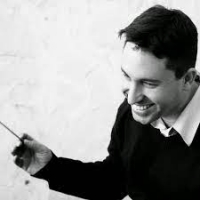Latest Sheet Music
Colbie Caillat

Colbie Marie Caillat (born May 28, 1985 in Newbury Park, California) is an American pop singer-songwriter and guitarist from Malibu, California. Her father, Ken Caillat, co-produced Fleetwood Mac's Rumours and Tusk albums; Caillat recalls being around the likes of Mick Fleetwood and John McVie as a child.
The popularity of Caillat's MySpace profile led her to become the number-one unsigned singer in her genre for four months. Her popularity on the social network was partially due to her song "Bubbly," and the songs on her profile have been played more than forty-two million times (as of May 31, 2008). For the week of July 17, 2007, "Bubbly" was featured on the iTunes Store as the free "Single of the Week". The promotion coincided with the release of Coco, her debut studio album. Caillat was also spotlighted by Rhapsody during the 2007 Black Friday Sale at Best Buy.
According to her MySpace profile, Caillat was first inspired to start singing at age 11 when she first heard the Fugees' 1996 version of the song "Killing Me Softly", made famous by Roberta Flack in 1973. Her MySpace profile also states that, though trained at piano from an early age, Caillat did not begin playing guitar until age nineteen. She also auditioned at least once for the television show American Idol, but never made it to the Hollywood rounds.
In May 2008, Caillat recorded a duet with Jason Mraz, called "Lucky," on his album, We Sing, We Dance, We Steal Things. The same month, Caillat recorded a cover of the song "Kiss the Girl" from The Little Mermaid for Disney's DisneyMania vol. 6 CD.
Caillat is currently shooting another music video in Hawaii for her song "The Little Things."
After touring with The Goo Goo Dolls and Lifehouse in 2007, she is now the supporting act for John Mayer in his 2008 Summer Tour.
The popularity of Caillat's MySpace profile led her to become the number-one unsigned singer in her genre for four months. Her popularity on the social network was partially due to her song "Bubbly," and the songs on her profile have been played more than forty-two million times (as of May 31, 2008). For the week of July 17, 2007, "Bubbly" was featured on the iTunes Store as the free "Single of the Week". The promotion coincided with the release of Coco, her debut studio album. Caillat was also spotlighted by Rhapsody during the 2007 Black Friday Sale at Best Buy.
According to her MySpace profile, Caillat was first inspired to start singing at age 11 when she first heard the Fugees' 1996 version of the song "Killing Me Softly", made famous by Roberta Flack in 1973. Her MySpace profile also states that, though trained at piano from an early age, Caillat did not begin playing guitar until age nineteen. She also auditioned at least once for the television show American Idol, but never made it to the Hollywood rounds.
In May 2008, Caillat recorded a duet with Jason Mraz, called "Lucky," on his album, We Sing, We Dance, We Steal Things. The same month, Caillat recorded a cover of the song "Kiss the Girl" from The Little Mermaid for Disney's DisneyMania vol. 6 CD.
Caillat is currently shooting another music video in Hawaii for her song "The Little Things."
After touring with The Goo Goo Dolls and Lifehouse in 2007, she is now the supporting act for John Mayer in his 2008 Summer Tour.
Guns and Roses

Guns N' Roses (sometimes abbreviated as GN'R or GnR) is an American rock band. The band formed in Hollywood, Los Angeles, California in 1985. The band, led by frontman and co-founder Axl Rose (born William Bruce Rose), has gone through numerous line-up changes and controversies since its formation; the current lineup comprises vocalist Rose, guitarists Ron "Bumblefoot" Thal, DJ Ashba and Richard Fortus, bassist Tommy Stinson, drummer Frank Ferrer and keyboardists Dizzy Reed and Chris Pitman. The band has released six studio albums, three EPs and one live album during its career.
The band has sold more than 100 million albums worldwide, including over 46 million in the United States. The band's 1987 major label debut album Appetite for Destruction has sold in excess of 28 million copies worldwide and reached number one on the United States Billboard 200. In addition, the album charted three Top 10 hits on the Billboard Hot 100, including "Sweet Child o' Mine" which reached number one. The 1991 albums Use Your Illusion I and Use Your Illusion II debuted on the two highest spots on the Billboard 200 and have sold a combined 14 million copies in the United States alone and 35 million worldwide. After over a decade of work, the band released their follow-up album, Chinese Democracy, in 2008.
Their mid-to-late eighties and early nineties years have been described by individuals in the music industry as the period in which "they brought forth a hedonistic rebelliousness and revived the punk attitude-driven hard rock scene, reminiscent of the early Rolling Stones."
The band has sold more than 100 million albums worldwide, including over 46 million in the United States. The band's 1987 major label debut album Appetite for Destruction has sold in excess of 28 million copies worldwide and reached number one on the United States Billboard 200. In addition, the album charted three Top 10 hits on the Billboard Hot 100, including "Sweet Child o' Mine" which reached number one. The 1991 albums Use Your Illusion I and Use Your Illusion II debuted on the two highest spots on the Billboard 200 and have sold a combined 14 million copies in the United States alone and 35 million worldwide. After over a decade of work, the band released their follow-up album, Chinese Democracy, in 2008.
Their mid-to-late eighties and early nineties years have been described by individuals in the music industry as the period in which "they brought forth a hedonistic rebelliousness and revived the punk attitude-driven hard rock scene, reminiscent of the early Rolling Stones."
Edward Elgar

Sir Edward William Elgar, 1st Baronet OM, GCVO (2 June 1857 – 23 February 1934) was an English composer, many of whose works have entered the British and international classical concert repertoire. Among his best-known compositions are orchestral works including the Enigma Variations, the Pomp and Circumstance Marches, concertos for violin and cello, and two symphonies. He also composed choral works, including The Dream of Gerontius, chamber music and songs. He was appointed Master of the King's Musick in 1924.
Stevie Wonder

Stevie Wonder (born Stevland Hardaway Judkins on May 13, 1950, name later changed to Stevland Hardaway Morris) is an American singer-songwriter, multi-instrumentalist, and record producer. A prominent figure in popular music during the latter half of the 20th century , Wonder has recorded more than thirty top ten hits, won 26 Grammy Awards (a record for a solo artist), plus one for lifetime achievement, won an Academy Award for Best Song and been inducted into both the Rock and Roll and Songwriters halls of fame. He has also been awarded the Polar Music Prize.
Blind from infancy, Wonder signed with Motown Records as a pre-adolescent at age twelve, and continues to perform and record for the label to this day. He has nine U.S. number-one hits to his name (on the pop Charts, 20 U.S. R&B number one hits), and album sales totaling more than 150 million units. Wonder has recorded several critically acclaimed albums and hit singles, and writes and produces songs for many of his label mates and outside artists as well. Wonder plays the piano, synthesizer, harmonica, congas, drums, bongos, organ, melodica, and clavinet. In his early career, he was best known for his harmonica work, but today he is better known for his keyboard skills and vocals.
Blind from infancy, Wonder signed with Motown Records as a pre-adolescent at age twelve, and continues to perform and record for the label to this day. He has nine U.S. number-one hits to his name (on the pop Charts, 20 U.S. R&B number one hits), and album sales totaling more than 150 million units. Wonder has recorded several critically acclaimed albums and hit singles, and writes and produces songs for many of his label mates and outside artists as well. Wonder plays the piano, synthesizer, harmonica, congas, drums, bongos, organ, melodica, and clavinet. In his early career, he was best known for his harmonica work, but today he is better known for his keyboard skills and vocals.
Chris Tomlin
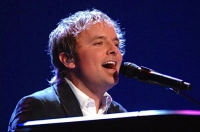
Christopher Dwayne Tomlin (born May 4, 1972) is a Christian worship leader and songwriter from Grand Saline, Texas, United States. He is a staff member at Austin Stone Community Church and is signed to EMI's sixstepsrecords. Tomlin also leads worship at many Passion events. Some of his most well-known songs are "How Great Is Our God", "Indescribable", "Forever", "Famous One", "We Fall Down", "Holy Is the Lord" and "Made to Worship".
According to the Christian Copyright Licensing International, Tomlin is the most sung Christian artist in the United States. He was awarded Male Vocalist at the 2006 and 2007 Gospel Music Awards, and was named Artist of the Year in 2007 and 2008. Chris Tomlin will be releasing his 7th studio album "Hello Love" which is due September 2nd 2008.
According to the Christian Copyright Licensing International, Tomlin is the most sung Christian artist in the United States. He was awarded Male Vocalist at the 2006 and 2007 Gospel Music Awards, and was named Artist of the Year in 2007 and 2008. Chris Tomlin will be releasing his 7th studio album "Hello Love" which is due September 2nd 2008.
Vincenzo de Crescenzo
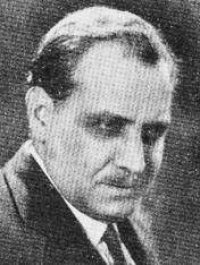
Vincenzo de Crescenzo Born: February 14, 1915, Naples, Italy Died: July 2, 1987, Moiano, Italy.
T-Max
T-Max (Korean: 티 맥스; RR: Ti Maegseu), stylized T-MAX or T.max, was a South Korean pop music group formed in 2007 under the label 2Step Entertainment (later Planet 905). The group began as a trio, where the "T" in its name was derived from the words "triple" and "trinity". T-Max released an album, an EP, five singles, some of which have songs different from its title, and several soundtrack singles for television shows such as Boys Over Flowers, Detectives in Trouble, and Master of Study. Its members have pursued individual acting gigs in dramas, sitcoms, and musicals.
Brahms

Johannes Brahms (May 7, 1833 â April 3, 1897) was a German composer of the Romantic period. He was born in Hamburg and in his later years he settled in Vienna, Austria.
Brahms maintained a Classical sense of form and order in his works â in contrast to the opulence of the music of many of his contemporaries. Thus many admirers (though not necessarily Brahms himself) saw him as the champion of traditional forms and "pure music," as opposed to the New German embrace of program music.
Brahms venerated Beethoven: in the composer's home, a marble bust of Beethoven looked down on the spot where he composed, and some passages in his works are reminiscent of Beethoven's style. The main theme of the finale of Brahms's First Symphony is reminiscent of the main theme of the finale of Beethoven's Ninth, and when this resemblance was pointed out to Brahms he replied that any ass â jeder Esel â could see that.
Ein deutsches Requiem was partially inspired by his mother's death in 1865, but also incorporates material from a Symphony he started in 1854, but abandoned following Schumann's suicide attempt. He once wrote that the Requiem "belonged to Schumann". The first movement of this abandoned Symphony was re-worked as the first movement of the First Piano Concerto.
Brahms also loved the Classical composers Mozart and Haydn. He collected first editions and autographs of their works, and edited performing editions. He also studied the music of pre-classical composers, including Giovanni Gabrieli, Johann Adolph Hasse, Heinrich Schütz and especially Johann Sebastian Bach. His friends included leading musicologists, and with Friedrich Chrysander he edited an edition of the works of François Couperin. He looked to older music for inspiration in the arts of strict counterpoint; the themes of some of his works are modelled on Baroque sources, such as Bach's The Art of Fugue in the fugal finale of Cello Sonata No. 1, or the same composer's Cantata No. 150 in the passacaglia theme of the Fourth Symphony's finale.
Brahms maintained a Classical sense of form and order in his works â in contrast to the opulence of the music of many of his contemporaries. Thus many admirers (though not necessarily Brahms himself) saw him as the champion of traditional forms and "pure music," as opposed to the New German embrace of program music.
Brahms venerated Beethoven: in the composer's home, a marble bust of Beethoven looked down on the spot where he composed, and some passages in his works are reminiscent of Beethoven's style. The main theme of the finale of Brahms's First Symphony is reminiscent of the main theme of the finale of Beethoven's Ninth, and when this resemblance was pointed out to Brahms he replied that any ass â jeder Esel â could see that.
Ein deutsches Requiem was partially inspired by his mother's death in 1865, but also incorporates material from a Symphony he started in 1854, but abandoned following Schumann's suicide attempt. He once wrote that the Requiem "belonged to Schumann". The first movement of this abandoned Symphony was re-worked as the first movement of the First Piano Concerto.
Brahms also loved the Classical composers Mozart and Haydn. He collected first editions and autographs of their works, and edited performing editions. He also studied the music of pre-classical composers, including Giovanni Gabrieli, Johann Adolph Hasse, Heinrich Schütz and especially Johann Sebastian Bach. His friends included leading musicologists, and with Friedrich Chrysander he edited an edition of the works of François Couperin. He looked to older music for inspiration in the arts of strict counterpoint; the themes of some of his works are modelled on Baroque sources, such as Bach's The Art of Fugue in the fugal finale of Cello Sonata No. 1, or the same composer's Cantata No. 150 in the passacaglia theme of the Fourth Symphony's finale.
Andrey Rubtsov
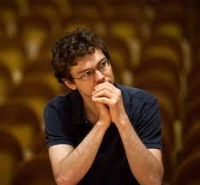
Andrey Rubtsov was born in Moscow. In 2011 he graduated with top honors from the Royal Academy of Music. Andrey Rubtsov was an assistant to Donald Runnicles at BBC Scottish Symphony Orchestra 2014-16 as well as Leverhulme Conducting Fellow at the Royal Conservatoire of Scotland. The Fellowship granted him opportunities to work many times with the Scottish Opera, RSNO and Red Note Ensemble.
György Ligeti
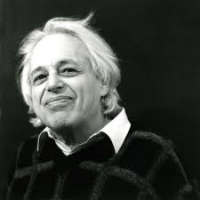
György Sándor Ligeti (May 28, 1923 – June 12, 2006) was a composer, born in a Hungarian Jewish family in Transylvania, Romania. He briefly lived in Hungary before later becoming an Austrian citizen. Many of his works are well known in classical music circles, but to the general public, he is best-known for the various pieces featured in the Stanley Kubrick films 2001: A Space Odyssey, The Shining, and Eyes Wide Shut.
Ligeti's music is best-known to the general public for its use in the films of Stanley Kubrick. The soundtrack to 2001: A Space Odyssey includes four of his pieces: Atmosphères, Lux Aeterna (for the moon-bus scene en route to the TMA-1 monolith in the crater Tycho), Requiem (the Kyrie section), and an electronically altered version of Aventures (in the cryptic final scenes). Some of this music was used again in Peter Hyams's 1984 sequel film, 2010. Kubrick's The Shining uses Lontano for orchestra. The second of Ligeti's Musica ricercata is used extensively in Eyes Wide Shut.
Ligeti's music is best-known to the general public for its use in the films of Stanley Kubrick. The soundtrack to 2001: A Space Odyssey includes four of his pieces: Atmosphères, Lux Aeterna (for the moon-bus scene en route to the TMA-1 monolith in the crater Tycho), Requiem (the Kyrie section), and an electronically altered version of Aventures (in the cryptic final scenes). Some of this music was used again in Peter Hyams's 1984 sequel film, 2010. Kubrick's The Shining uses Lontano for orchestra. The second of Ligeti's Musica ricercata is used extensively in Eyes Wide Shut.
Traditional

W. C. Handy
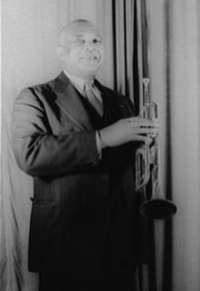
William Christopher Handy (November 16, 1873 – March 28, 1958) was a blues composer and musician. He was widely known as the "Father of the Blues".
Handy remains among the most influential of American songwriters. Though he was one of many musicians who played the distinctively American form of music known as the blues, he is credited with giving it its contemporary form. While Handy was not the first to publish music in the blues form, he took the blues from a regional music style with a limited audience to one of the dominant national forces in American music.
Handy remains among the most influential of American songwriters. Though he was one of many musicians who played the distinctively American form of music known as the blues, he is credited with giving it its contemporary form. While Handy was not the first to publish music in the blues form, he took the blues from a regional music style with a limited audience to one of the dominant national forces in American music.
Ben Landis
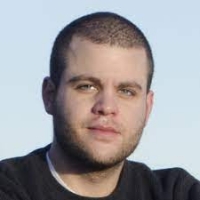
Ben Landis Musical artist Born: February 3, 1986 (age 35 years) Record label: Ben Landis Songs Matt's Theme Adventures in Pixels · 2012 Chickens Adventures in Pixels · 2012 Defeat Dinosaurus Adventures in Pixels · 2012
Songs for a New World
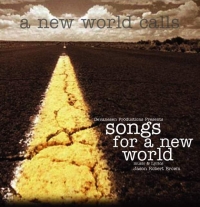
Songs for a New World is a work of musical theater written and composed by Jason Robert Brown. Its original off-Broadway production ran for 28 performances at the WPA Theater in New York City in 1995. The show sits on the boundary between musical and song cycle, but it is neither; it is an abstract musical, a series of songs all connected by theme rather than narrative. The show employs four performers who do not literally play the same characters throughout the show but who do have consistently developing character arcs nonetheless. It is far more than a revue or song cycle but it's not a standard narrative book musical. Composer Jason Robert Brown has said of his show, "It's about one moment. It's about hitting the wall and having to make a choice, or take a stand, or turn around and go back."
The original cast consisted of Brooks Ashmanskas, Andrea Burns, Jessica Molaskey, and Billy Porter (Porter's part was sung by Ty Taylor on the original cast recording). Daisy Prince, daughter of Broadway director Harold Prince directed. The original band consisted of Jason Robert Brown on piano, Randy Landau on bass, Tom Partington on drums, Joe Reina on keyboards, and Warren Smith & Rob McEwan on percussion. Songs for a New World was Jason Robert Brown's first produced show.
The piano features heavily throughout the show's music and because of its small cast and orchestra, Songs for a New World has become a favorite small show for colleges and local theatres, despite its vocally demanding score. The music of Songs for a New World is heavily influenced by a broad range of musical genres, including pop, gospel, jazz and classical music. Many of the songs combine elements of two or more of these genres. Some of the songs reference well-known historical and fictional characters, including Martin Luther King Jr., Mrs. Santa Claus, and Betsy Ross.
The original cast consisted of Brooks Ashmanskas, Andrea Burns, Jessica Molaskey, and Billy Porter (Porter's part was sung by Ty Taylor on the original cast recording). Daisy Prince, daughter of Broadway director Harold Prince directed. The original band consisted of Jason Robert Brown on piano, Randy Landau on bass, Tom Partington on drums, Joe Reina on keyboards, and Warren Smith & Rob McEwan on percussion. Songs for a New World was Jason Robert Brown's first produced show.
The piano features heavily throughout the show's music and because of its small cast and orchestra, Songs for a New World has become a favorite small show for colleges and local theatres, despite its vocally demanding score. The music of Songs for a New World is heavily influenced by a broad range of musical genres, including pop, gospel, jazz and classical music. Many of the songs combine elements of two or more of these genres. Some of the songs reference well-known historical and fictional characters, including Martin Luther King Jr., Mrs. Santa Claus, and Betsy Ross.
Pokemon

Pokémon, also known as Pocket Monsters in Japan, is a Japanese media franchise managed by The Pokémon Company, a company founded by Nintendo, Game Freak, and Creatures. The franchise was created by Satoshi Tajiri in 1995, and is centered on fictional creatures called "Pokémon", which humans, known as Pokémon Trainers, catch and train to battle each other for sport. Works within the franchise are set in the Pokémon universe. The English slogan for the franchise is "Gotta Catch 'Em All".
3 Doors Down

3 Doors Down is an American rock band formed in 1994 in Escatawpa, Mississippi by Brad Arnold (vocals and drums), Matt Roberts (guitar) and Todd Harrell (bass). The band signed to Universal Records after the success of their song "Kryptonite". The band has since sold well over 15 million albums worldwide since their debut album, The Better Life, which was released in 2000. They also perform more than 300 concerts a year and have shared the stage with other artists such as Tantric, Lynyrd Skynyrd, Staind, Nickelback, Alter Bridge, Breaking Benjamin, Econoline Crush, Hinder, Seether, Shinedown, Finger Eleven, and Daughtry. Hit song It's Not My Time is featured in the video game NHL 09.
Ernst Toch
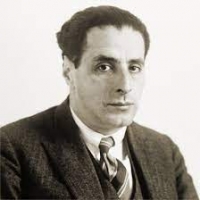
Ernst Toch (German: ; 7 December 1887 – 1 October 1964) was an Austrian composer of classical music and film scores. He sought throughout his life to introduce new approaches to music.Toch was born in Leopoldstadt, Vienna, into the family of a humble Jewish leather dealer when the city was at its 19th-century cultural zenith. He studied philosophy at the University of Vienna, medicine at Heidelberg and music at the Hoch Conservatory (1909–1913) in Frankfurt. His main instrument was the piano, and he was a pianist of considerable stature, performing to acclaim throughout much of western Europe. Much of his writing was intended for the piano.
William Steffe
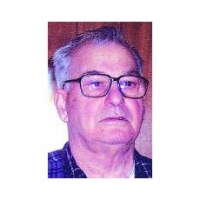
William Steffe (1830–1890), born in South Carolina, was a Philadelphia bookkeeper and insurance agent who is credited with collecting and editing the musical tune for a camp-meeting song with the traditional "Glory Hallelujah" refrain, in about 1856. It opened with "Say, brothers, will you meet us / on Canaan's happy shore?" The tune became widely known.
Early in the American Civil War, this tune was used to create the Union army marching song "John Brown's Body", which begins with the lyrics "John Brown's body lies a-mouldering in the grave, but his soul goes marching on."
In November 1861, Julia Ward Howe, having heard this version, used the tune as the basis of her new verse, later known as "The Battle Hymn of the Republic".
Early in the American Civil War, this tune was used to create the Union army marching song "John Brown's Body", which begins with the lyrics "John Brown's body lies a-mouldering in the grave, but his soul goes marching on."
In November 1861, Julia Ward Howe, having heard this version, used the tune as the basis of her new verse, later known as "The Battle Hymn of the Republic".
Gustave Charpentier
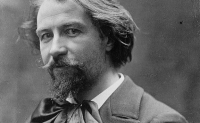
Gustave Charpentier (French: ; 25 June 1860 – 18 February 1956) was a French composer, best known for his opera Louise.Charpentier was born in Dieuze, Moselle, the son of a baker, and with the assistance of a rich benefactor he studied violin at the conservatoire in Lille before entering the Paris Conservatoire in 1881. There he took lessons in composition under Jules Massenet (from 1885) and had a reputation of wanting to shock his professors. In 1887 he won the Prix de Rome for his cantata Didon. During the time in Rome that the prize gave him, he wrote the orchestral suite Impressions d'Italie and began work on the libretto and music for what would become his best-known work, the opera Louise.
Marvin Hamlisch
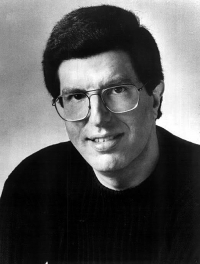
Marvin Frederick Hamlisch (June 2, 1944 – August 6, 2012) was an American composer and conductor. Hamlisch was one of only sixteen people to win Emmy, Grammy, Oscar and Tony awards. This collection of all four is referred to as an "EGOT". He is one of only two people (along with composer Richard Rodgers) to have won those four prizes and a Pulitzer Prize ("PEGOT").
Gurdjieff - De Hartmann
George Ivanovich Gurdjieff was a philosopher, mystic, spiritual teacher, and composer of Armenian and Greek descent, born in Gyumri, Armenia.
Dvorak

Antonín Leopold Dvořák (September 8, 1841 – May 1, 1904) was a Czech composer of Romantic music, who employed the idioms and melodies of the folk music of his native Bohemia and Moravia. His works include operas, symphonic, choral and chamber music. His best-known works are his New World Symphony (particularly the slow movement), as well as his Slavonic Dances, American String Quartet, and Cello Concerto in B minor.
Dvořák wrote in a variety of forms: his nine symphonies generally stick to classical models that Beethoven would have recognised, but he also worked in the newly developed symphonic poem form and the influence of Richard Wagner is apparent in some works. Many of his works also show the influence of Czech folk music, both in terms of rhythms and melodic shapes; perhaps the best known examples are the two sets of Slavonic Dances. Dvořák also wrote operas (the best known of which is Rusalka); serenades for string orchestra and wind ensemble; chamber music (including a number of string quartets, and quintets); songs; choral music; and piano music.
Dvořák wrote in a variety of forms: his nine symphonies generally stick to classical models that Beethoven would have recognised, but he also worked in the newly developed symphonic poem form and the influence of Richard Wagner is apparent in some works. Many of his works also show the influence of Czech folk music, both in terms of rhythms and melodic shapes; perhaps the best known examples are the two sets of Slavonic Dances. Dvořák also wrote operas (the best known of which is Rusalka); serenades for string orchestra and wind ensemble; chamber music (including a number of string quartets, and quintets); songs; choral music; and piano music.
Shostakovich

Dmitri Dmitriyevich Shostakovich (25 September 1906 – 9 August 1975) was a Soviet Russian composer and one of the most celebrated composers of the 20th century.
Shostakovich achieved fame in the Soviet Union under the patronage of Leon Trotsky's chief of staff Mikhail Tukhachevsky, but later had a complex and difficult relationship with the Stalinist bureaucracy. In 1936, the government, most probably under orders from Stalin, harshly criticized his opera Lady Macbeth of the Mtsensk District, causing him to withdraw the Fourth Symphony during its rehearsal stages. Shostakovich's music was officially denounced twice, in 1936 and 1948, and was periodically banned. Nevertheless, he also received accolades and state awards and served in the Supreme Soviet of the RSFSR. Despite the official controversy, his works were popular and well received.
Shostakovich achieved fame in the Soviet Union under the patronage of Leon Trotsky's chief of staff Mikhail Tukhachevsky, but later had a complex and difficult relationship with the Stalinist bureaucracy. In 1936, the government, most probably under orders from Stalin, harshly criticized his opera Lady Macbeth of the Mtsensk District, causing him to withdraw the Fourth Symphony during its rehearsal stages. Shostakovich's music was officially denounced twice, in 1936 and 1948, and was periodically banned. Nevertheless, he also received accolades and state awards and served in the Supreme Soviet of the RSFSR. Despite the official controversy, his works were popular and well received.
Keane

Keane are an English piano rock band, first established in Battle, East Sussex in 1995, and taking their current name in 1997. The group comprises composer, bassist, and pianist Tim Rice-Oxley, lead vocalist Tom Chaplin and drummer Richard Hughes. Their original line-up included founder and guitarist Dominic Scott, who left in 2001. Keane are known for using a piano as their lead instrument instead of guitars, significantly differentiating them from most rock bands. The inclusion of a distorted piano effect since 2006 and various synthesizers are now a common feature in their music that nowadays combines the piano rock sound used during their first album and the alternative rock sound which developed during 2005. Acoustic and power ballads are a highlight in the group's music, including fan favourite songs such as "On a Day Like Today" and "We Might as Well Be Strangers".
Their first two studio albums, Hopes and Fears and Under the Iron Sea achieved success in the United Kingdom upon release and very high sales worldwide: their multi-award-winning debut was the best-selling British album of 2004, and their sophomore sold up to 222,000 copies during its first week on sale in June 2006. In May 2008, both Hopes and Fears (#13) and Under the Iron Sea (#8) were voted by readers of Q magazine within the best British albums ever; Keane, The Beatles, Oasis and Radiohead were the only musical acts having two albums in the top 20.
The band's third studio album, Perfect Symmetry will be released in October 13, 2008.
Their first two studio albums, Hopes and Fears and Under the Iron Sea achieved success in the United Kingdom upon release and very high sales worldwide: their multi-award-winning debut was the best-selling British album of 2004, and their sophomore sold up to 222,000 copies during its first week on sale in June 2006. In May 2008, both Hopes and Fears (#13) and Under the Iron Sea (#8) were voted by readers of Q magazine within the best British albums ever; Keane, The Beatles, Oasis and Radiohead were the only musical acts having two albums in the top 20.
The band's third studio album, Perfect Symmetry will be released in October 13, 2008.
Liszt Franz
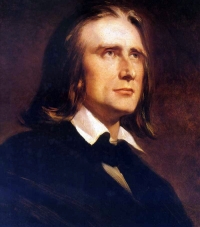
Franz Liszt (German: ; Hungarian: Liszt Ferencz, in modern usage Liszt Ferenc ; 22 October 1811 – 31 July 1886) was a Hungarian composer, virtuoso pianist, conductor, music teacher, arranger, and organist of the Romantic era. He was also a writer, a philanthropist, a Hungarian nationalist and a Franciscan tertiary.
Liszt gained renown in Europe during the early nineteenth century for his prodigious virtuosic skill as a pianist. He was a friend, musical promoter and benefactor to many composers of his time, including Frédéric Chopin, Richard Wagner, Hector Berlioz, Robert Schumann, Camille Saint-Saëns, Edvard Grieg, Ole Bull, Joachim Raff, Mikhail Glinka, and Alexander Borodin.
Liszt gained renown in Europe during the early nineteenth century for his prodigious virtuosic skill as a pianist. He was a friend, musical promoter and benefactor to many composers of his time, including Frédéric Chopin, Richard Wagner, Hector Berlioz, Robert Schumann, Camille Saint-Saëns, Edvard Grieg, Ole Bull, Joachim Raff, Mikhail Glinka, and Alexander Borodin.
Tower of Power
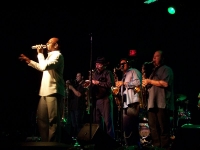
Tower of Power is an American soul and funk based horn section and band, originating from Oakland, California that has been performing for over 40 years.
Tower of Power has been recording and touring continuously since 1968, and the band maintains a very busy tour calendar. In 2008 they celebrated their 40th Anniversary with shows in San Mateo, California in August, and a huge show at the Fillmore in San Francisco on October 18, 2008. At that show many former band members appeared onstage, and the entire event was recorded for a DVD to be released in late-2009.
Tower of Power has released 19 albums over the years (compilations and regional variations not included), the latest being 2009's homage to classic soul songs The Great American Soulbook.
Tower of Power has been recording and touring continuously since 1968, and the band maintains a very busy tour calendar. In 2008 they celebrated their 40th Anniversary with shows in San Mateo, California in August, and a huge show at the Fillmore in San Francisco on October 18, 2008. At that show many former band members appeared onstage, and the entire event was recorded for a DVD to be released in late-2009.
Tower of Power has released 19 albums over the years (compilations and regional variations not included), the latest being 2009's homage to classic soul songs The Great American Soulbook.
Gilbert DeBenedetti
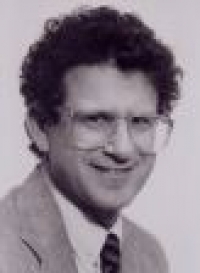
Pittsburgh, Pennsylvania (USA), getting degrees in Music from Carnegie-Mellon University and from the University of Pittsburgh.
Besides arranging music for piano, I have enjoyed teaching Music Theory. I taught that subject at the University of Pittsburgh at Greensburg and at the Pittsburgh High School for Creative and Performing Arts (CAPA). I also have been involved with the Advanced Placement Music Theory Exam, developed and administered by the Educational Testing Service and the College Board.
Besides arranging music for piano, I have enjoyed teaching Music Theory. I taught that subject at the University of Pittsburgh at Greensburg and at the Pittsburgh High School for Creative and Performing Arts (CAPA). I also have been involved with the Advanced Placement Music Theory Exam, developed and administered by the Educational Testing Service and the College Board.
John Philip Sousa
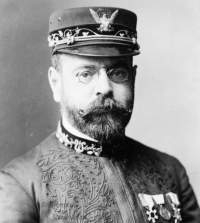
John Philip Sousa (November 6, 1854 – March 6, 1932) was an American composer and conductor of the late Romantic era known particularly for American military and patriotic marches. Because of his mastery of march composition and resultant prominence, he is known as "The March King". In public he was typically referenced by his full name.
Sigur Ros
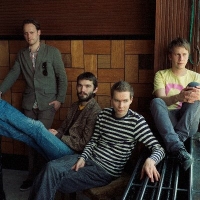
Sigur Rós (pronounced sigur rous with emphasis on first letters); is an Icelandic post-rock band that uses melodic, classical and minimalist elements. The group is particularly noted for their overhead voices and vocalist Jónsi's falsetto. Múm and Amiina can easily be counted among the groups that make music by being influenced by the group. All of these bands have evolved from Iceland's creative and colorful music scene.
Carlos Cobián
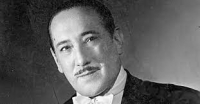
Juan Carlos Cobián was an Argentine bandleader and tango composer. He led the "evolutionary" tendency in tango which was perceived as tending to concert music than to traditional dance music.
Francesco landini
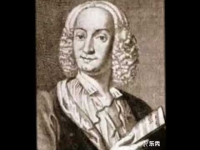
Francesco Landini was an Italian composer, organist, singer, poet and instrument maker who was a central figure of the Trecento style in late Medieval music. One of the most revered composers of the second half of the 14th-century, he was by far the most famous composer in Italy.
Camille Saint-Saëns
Charles-Camille Saint-Saëns (French pronunciation: ; 9 October 1835 – 16 December 1921) was a French composer, organist, conductor, and pianist of the Romantic era. He is known especially for The Carnival of the Animals, Danse macabre, Samson and Delilah (Opera) , Piano Concerto No. 2, Cello Concerto No. 1, Havanaise, Introduction and Rondo Capriccioso, and his Symphony No. 3 (Organ Symphony).
Debussy

Achille-Claude Debussy (August 22, 1862 – March 25, 1918) was a French composer. Along with Maurice Ravel, he is considered one of the most prominent figures working within the field of Impressionist music, though he himself intensely disliked the term when applied to his compositions. Debussy was not only among the most important of all French composers but also was a central figure in all European music at the turn of the twentieth century.
Debussy's music virtually defines the transition from late-Romantic music to twentieth century modernist music. In French literary circles, the style of this period was known as Symbolism, a movement that directly inspired Debussy both as a composer and as an active cultural participant.
Debussy's music virtually defines the transition from late-Romantic music to twentieth century modernist music. In French literary circles, the style of this period was known as Symbolism, a movement that directly inspired Debussy both as a composer and as an active cultural participant.
Heitor Villa-Lobos

Heitor Villa-Lobos (March 5, 1887 – November 17, 1959) was a Brazilian composer, described as "the single most significant creative figure in 20th-century Brazilian art music". Villa-Lobos has become the best-known and most significant Latin American composer to date. He wrote numerous orchestral, chamber, instrumental and vocal works. His music was influenced by both Brazilian folk music and by stylistic elements from the European classical tradition, as exemplified by his Bachianas Brasileiras ("Brazilian Bachian-pieces").
His earliest pieces originated in guitar improvisations, for example Panqueca ("Pancake") of 1900. The concert series of 1915–21 included first performances of pieces demonstrating originality and virtuosic technique. Some of these pieces are early examples of elements of importance throughout his œuvre. His attachment to the Iberian Peninsula is demonstrated in Canção Ibéria of 1914 and in orchestral transcriptions of some of Enrique Granados' piano Goyescas (1918, now lost). Other themes that were to recur in his later work include the anguish and despair of the piece Desesperança— Sonata Phantastica e Capricciosa no. 1 (1915), a violin sonata including "histrionic and violently contrasting emotions", the birds of L'oiseau blessé d'une flèche (1913), the mother-child relationship (not usually a happy one in Villa-Lobos's music) in Les mères of 1914, and the flowers of Suíte floral for piano of 1916–18 which reappeared in Distribuição de flores for flute and guitar of 1937.
Reconciling European tradition and Brazilian influences was also an element that bore fruit more formally later. His earliest published work Pequena suíte for cello and piano of 1913 shows a love for the cello, but is not notably Brazilian, although it contains elements that were to resurface later. His three-movement String Quartet no. 1 (Suíte graciosa) of 1915 (expanded to six movements ca. 1947) is influenced by European opera, while Três danças características (africanas e indígenas) of 1914–16 for piano, later arranged for octet and subsequently orchestrated, is radically influenced by the tribal music of the Caripunas Indians of Mato Grosso.
With his tone poems Amazonas (1916, first performed in Paris in 1929) and Uirapurú (1916, first performed 1935) he created works dominated by indigenous Brazilian influences. The works use Brazilian folk tales and characters, imitations of the sounds of the jungle and its fauna, imitations of the sound of the nose-flute by the violinophone, and not least imitations of the uirapuru itself.
His earliest pieces originated in guitar improvisations, for example Panqueca ("Pancake") of 1900. The concert series of 1915–21 included first performances of pieces demonstrating originality and virtuosic technique. Some of these pieces are early examples of elements of importance throughout his œuvre. His attachment to the Iberian Peninsula is demonstrated in Canção Ibéria of 1914 and in orchestral transcriptions of some of Enrique Granados' piano Goyescas (1918, now lost). Other themes that were to recur in his later work include the anguish and despair of the piece Desesperança— Sonata Phantastica e Capricciosa no. 1 (1915), a violin sonata including "histrionic and violently contrasting emotions", the birds of L'oiseau blessé d'une flèche (1913), the mother-child relationship (not usually a happy one in Villa-Lobos's music) in Les mères of 1914, and the flowers of Suíte floral for piano of 1916–18 which reappeared in Distribuição de flores for flute and guitar of 1937.
Reconciling European tradition and Brazilian influences was also an element that bore fruit more formally later. His earliest published work Pequena suíte for cello and piano of 1913 shows a love for the cello, but is not notably Brazilian, although it contains elements that were to resurface later. His three-movement String Quartet no. 1 (Suíte graciosa) of 1915 (expanded to six movements ca. 1947) is influenced by European opera, while Três danças características (africanas e indígenas) of 1914–16 for piano, later arranged for octet and subsequently orchestrated, is radically influenced by the tribal music of the Caripunas Indians of Mato Grosso.
With his tone poems Amazonas (1916, first performed in Paris in 1929) and Uirapurú (1916, first performed 1935) he created works dominated by indigenous Brazilian influences. The works use Brazilian folk tales and characters, imitations of the sounds of the jungle and its fauna, imitations of the sound of the nose-flute by the violinophone, and not least imitations of the uirapuru itself.
Train
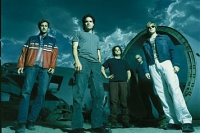
Train is a Grammy Award winning rock band formed in San Francisco, California. To date, three of their albums have peaked in the top 10 of the Billboard 200 and have sold a total of over 4 million albums in the US. Three of their songs have been top 20 hits on the Billboard Hot 100 including their biggest hit "Drops of Jupiter (Tell Me)". Train has found success on modern adult contemporary radio stations, where they have had eight songs in the top 20 of the Hot Adult Top 40 Tracks chart.
Members:
Patrick Monahan
Scott Underwood
Jimmy Stafford
Brandon Bush
Johnny Colt
Members:
Patrick Monahan
Scott Underwood
Jimmy Stafford
Brandon Bush
Johnny Colt
Chris Potter
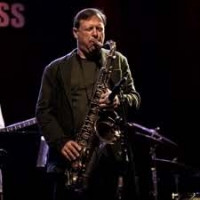
Chris Potter (born January 1, 1971) is an American jazz saxophonist, composer, and multi-instrumentalist.Potter came to prominence as a sideman with trumpeter Red Rodney, before stints with drummer Paul Motian, bassist Dave Holland, trumpeter Dave Douglas and others.
Leonello Casucci
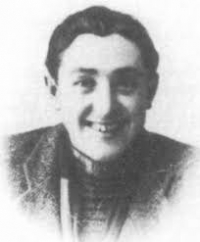
Leonello Casucci was an Italian composer. Casucci was born in Pistoia, Tuscany in 1885 and he's best known for having composed the music of the famous 1929 hit song Schöner Gigolo, armer Gigolo in 1928, with lyrics in German by Julius Brammer in 1924, translated to "Just a Gigolo" into English by Irving Caesar.
Franz von Suppé
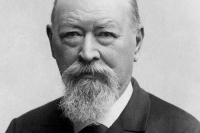
Franz von Suppé was an Austrian composer of light operas and other theatre music. He came from the Kingdom of Dalmatia, Austro-Hungarian Empire. A composer and conductor of the Romantic period, he is notable for his four dozen operettas.
Ludwig van Beethoven

Ludwig van Beethoven (/ˈlʊdvɪɡ væn ˈbeɪt(h)oʊvən/ (About this soundlisten); German: (About this soundlisten); baptised 17 December 1770 – 26 March 1827) was a German composer and pianist. A crucial figure in the transition between the classical and romantic eras in classical music, he remains one of the most recognized and influential musicians of this period, and is considered to be one of the greatest composers of all time.
Beethoven was born in Bonn, the capital of the Electorate of Cologne, and part of the Holy Roman Empire. He displayed his musical talents at an early age and was vigorously taught by his father Johann van Beethoven, and was later taught by composer and conductor Christian Gottlob Neefe. At age 21, he moved to Vienna and studied composition with Joseph Haydn. Beethoven then gained a reputation as a virtuoso pianist, and was soon courted by Prince Lichnowsky for compositions, which resulted in Opus 1 in 1795.
Beethoven was born in Bonn, the capital of the Electorate of Cologne, and part of the Holy Roman Empire. He displayed his musical talents at an early age and was vigorously taught by his father Johann van Beethoven, and was later taught by composer and conductor Christian Gottlob Neefe. At age 21, he moved to Vienna and studied composition with Joseph Haydn. Beethoven then gained a reputation as a virtuoso pianist, and was soon courted by Prince Lichnowsky for compositions, which resulted in Opus 1 in 1795.
Vampire Knight

Yuki's oldest memory is that of a winter night, when she was attacked by a vampire and rescued by another. Ten years later, Yuki, the adopted daughter of the director of the Cross Academy, has grown up and now acts as a guardian of the Day Class.
Mozart

Wolfgang Amadeus Mozart, full name Johann Chrysostom Wolfgang Amadeus Mozart (27 January 1756 â 5 December 1791) was a prolific and influential composer of the Classical era. His over 600 compositions include works widely acknowledged as pinnacles of symphonic, concertante, chamber, piano, operatic, and choral music. Mozart is among the most enduringly popular of classical composers, and many of his works are part of the standard concert repertoire.
Mozart's music, like Haydn's, stands as an archetypal example of the Classical style. His works spanned the period during which that style transformed from one exemplified by the style galant to one that began to incorporate some of the contrapuntal complexities of the late Baroque, complexities against which the galant style had been a reaction. Mozart's own stylistic development closely paralleled the development of the classical style as a whole. In addition, he was a versatile composer and wrote in almost every major genre, including symphony, opera, the solo concerto, chamber music including string quartet and string quintet, and the piano sonata. While none of these genres were new, the piano concerto was almost single-handedly developed and popularized by Mozart. He also wrote a great deal of religious music, including masses; and he composed many dances, divertimenti, serenades, and other forms of light entertainment.
The central traits of the classical style can be identified in Mozart's music. Clarity, balance, and transparency are hallmarks of his work.
Mozart's music, like Haydn's, stands as an archetypal example of the Classical style. His works spanned the period during which that style transformed from one exemplified by the style galant to one that began to incorporate some of the contrapuntal complexities of the late Baroque, complexities against which the galant style had been a reaction. Mozart's own stylistic development closely paralleled the development of the classical style as a whole. In addition, he was a versatile composer and wrote in almost every major genre, including symphony, opera, the solo concerto, chamber music including string quartet and string quintet, and the piano sonata. While none of these genres were new, the piano concerto was almost single-handedly developed and popularized by Mozart. He also wrote a great deal of religious music, including masses; and he composed many dances, divertimenti, serenades, and other forms of light entertainment.
The central traits of the classical style can be identified in Mozart's music. Clarity, balance, and transparency are hallmarks of his work.
Jekyll & Hyde
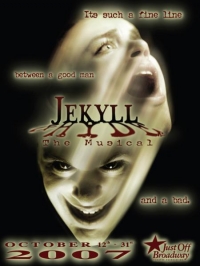
Jekyll & Hyde is a Broadway musical based on the novel, The Strange Case of Dr Jekyll and Mr Hyde by Robert Louis Stevenson. The original stage conception was by Steve Cuden and Frank Wildhorn. The music was composed by Wildhorn and the lyrics were written by Leslie Bricusse.
The show opened on Broadway on April 28, 1997. There were 44 preview performances starting on March 21. The show ran for 1,543 regular performances, closing on January 7, 2001 and is the longest-running show in the history of the Plymouth Theatre.
Despite the long run, the musical lost money in the end: more than $1.5 million.
The show has also been adapted into a film starring David Hasselhoff and Coleen Sexton. The film was directed by Don Roy King.
The show opened on Broadway on April 28, 1997. There were 44 preview performances starting on March 21. The show ran for 1,543 regular performances, closing on January 7, 2001 and is the longest-running show in the history of the Plymouth Theatre.
Despite the long run, the musical lost money in the end: more than $1.5 million.
The show has also been adapted into a film starring David Hasselhoff and Coleen Sexton. The film was directed by Don Roy King.
Steve Swallow
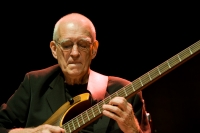
Steve Swallow (born October 4, 1940) is a jazz fusion bassist and composer noted for his collaborations with Jimmy Giuffre, Gary Burton, and Carla Bley. He was one of the first jazz double bassists to switch entirely to electric bass guitar.
Ryuichi Sakamoto
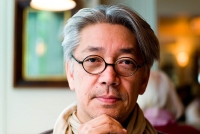
Ryuichi Sakamoto (坂本 龍一 Sakamoto Ryūichi?, born January 17, 1952) is an Academy Award-, Grammy-, and Golden Globe-winning Japanese musician, composer, record producer and actor, based in New York and Tokyo. He played keyboards in the influential Japanese electropop band Yellow Magic Orchestra. His 1999 musical composition "Energy Flow" is the first number-one instrumental single in the Japan's Oricon charts history. He was ranked at number 59 in a list of the top 100 most influential musicians compiled by HMV Japan.
T-ara
T-ara (/tiˈɑːrə/; Korean: 티아라) is a South Korean girl group, formed in 2009 by MBK Entertainment. T-ara's career is marked by hook-heavy dance-pop music, a result of their close partnership with composer Shinsadong Tiger. A broad array of visual concepts have earned the group a "chameleon-like" reputation.The group officially debuted in July 2009 with the single "Lie" (거짓말), following line-up changes due to creative differences. Their debut studio album Absolute First Album was released in December 2009 and spawned several hit songs including "TTL (Time to Love)", "Bo Peep Bo Peep", and "You Drive Me Crazy".
Chobits
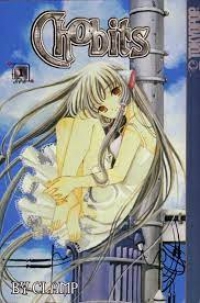
Chobits (Japanese: ちょびっツ, Hepburn: Chobittsu) is a Japanese manga series written and illustrated by the Japanese manga collective Clamp. It was published by Kodansha in Weekly Young Magazine from the 43rd issue for 2000 to the 48th issue for 2002 and collected in eight bound volumes. Chobits was adapted as a 26-episode-long anime television series broadcast on TBS from April to September 2002. In addition, it has spawned two video games as well as various merchandise such as figurines, collectable cards, calendars, and artbooks.
Dionísio Vila Maior
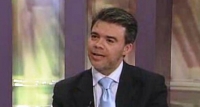
Dionísio Vila Maior Musical Activities Conductor, Arranger, Composer; Member of Choirs Coro Mozart, Coro Mozart (Viseu), Pro Vocal Vox ...
trigun (anime)
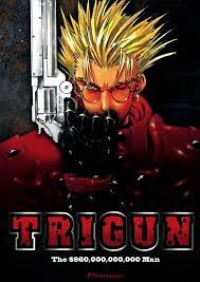
Trigun's mysterious, elusive main character is actually more of a hero inside; and there are times when he acts like a complete idiot. Chapters; Exactly.
Maroon 5
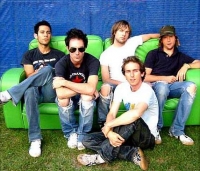
Maroon 5 is a Grammy Award-winning American pop rock band. Formed with only two members at the French Woods Festival of the Performing Arts and expanded in Los Angeles, the group comprises five members: Adam Levine (lead vocals, rhythm guitar), James Valentine (lead guitar, backing vocals), Jesse Carmichael (keyboards, rhythm guitar, backing vocals), Mickey Madden (bass guitar), and Matt Flynn (drums, percussion).
 Sheet Music Max is a site for those who wants to access popular sheet music easily,
letting them download the sheet music for free for trial purposes.
It's completely free to download and try the listed sheet music, but you have to delete the files after 24 hours of trial.
Don't forget, if you like the piece of music you have just learned playing,
treat the artist with respect, and go buy the original sheet music.
Sheet Music Max is a site for those who wants to access popular sheet music easily,
letting them download the sheet music for free for trial purposes.
It's completely free to download and try the listed sheet music, but you have to delete the files after 24 hours of trial.
Don't forget, if you like the piece of music you have just learned playing,
treat the artist with respect, and go buy the original sheet music.
